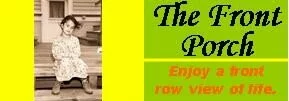What do you know about Leland?
Jonathan Pait
July 4, 2002
The recent discussion surrounding the first amendment has served the good purpose of leading many to brush off some of those old books that they have not picked up in some time. It has interested me to look back at the lives of the men behind the founding of this grand experiment called the United States.
When discussions come up about the first amendment and specifically the Establishment Clause, Jefferson's name is on the tip of everyone's tongue. However, the man behind this particular clause is James Madison. Behind his involvement is a little known name, John Leland. Understanding more about Mr. Leland gives us great insight into what the amendment means to us today.
John Leland was a very independent-minded Baptist preacher in Orange County of the Virginia colony. At the time of his ministry, Baptists were persecuted for holding services that kept people out of the established church. The Baptists preached a very independent view of a person's relationship with God. The church organization did not play a large part in Baptist doctrine. Some of the preaching upset those in the established church. Ultimately, this focus ended Leland up in jail. Other Baptist preachers were beaten and others placed in stocks.
When the War of Independence ended, there was a measure of freedom returned to the Baptists and their numbers increased. Mr. Leland became an influential member of the Orange community. The preacher shared respect by members of religious and non-religious communities. Leland became a pivotal player in James Madisonís part in the creation of the Bill of Rights.
There was a question whether Madison would represent Orange County at the ratifying convention. There were a large number of citizens who were concerned that there was not a specific mention of religious freedom in the Constitution. They were happy with article six that kept religion from being a litmus test for election to office. They were concerned that the future could bring about another established church that would once again lead to persecution of "non-establishment" churches. For this reason, they supported a candidate that opposed the Constitution. Things were not looking good for Madison.
When Madison realized his precarious position, he sought out Leland to gain his support. Leland explained his concerns to Madison and Madison countered with the argument that the Constitution's silence on the matter of an established church was proof that the new government was not intending to create one. Leland expressed his confidence in Madison and the other framers of the Constitution, but he was concerned for the future.
It was then that Madison introduced Leland to his idea of adding an amendment to the Constitution that would delineate those rights over which the new government would have no control. This was the first amendment. Leland was satisfied with Madison's plan. However, he was still not certain. The Constitution would first have to be ratified before an amendment could be introduced. What if the amendment was rejected?
In the end, Leland accepted Madison's promise that he would make the acceptance of the amendment his passion. Leland also placed the matter in the hands of God. He then became an ardent supporter of Madison and often travel with him to help him get elected.
The rest of the story is more familiar history to all of us. If you are interested in learning more about the Establishment Clause, you will find it helpful to gain an understanding of what was going through the minds of those who lived it. Some of what you will learn will open the eyes of both sides of the Establishment Clause debate.
Returning to these moments in history also shows us how that ordinary people can play an extraordinary role in the shaping of the future. That includes you and me. The opportunity for us all to be a John Leland is one of those great blessings (apologies to my secularist friends) that we can celebrate on this Independence Day.
|



